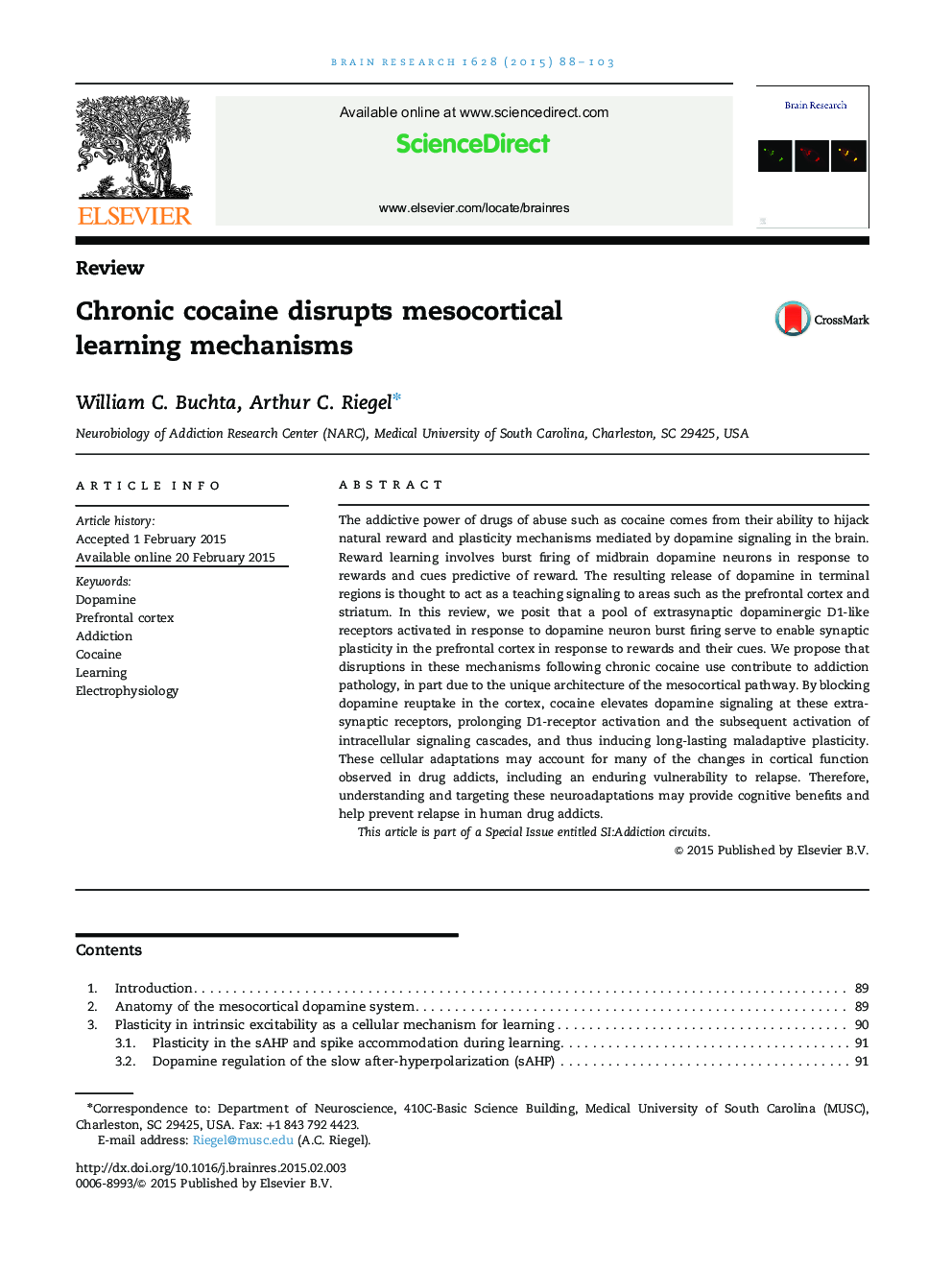| کد مقاله | کد نشریه | سال انتشار | مقاله انگلیسی | نسخه تمام متن |
|---|---|---|---|---|
| 6262683 | 1292374 | 2015 | 16 صفحه PDF | دانلود رایگان |

- Mesocortical dopamine enables learning via volume transmission.
- Dopamine enhancement of intrinsic excitability promotes synaptic plasticity.
- Cocaine abuse hijacks this learning mechanism, enhancing cue-drug associations.
- Altered intrinsic excitability may contribute to cortical dysfunction in addiction.
The addictive power of drugs of abuse such as cocaine comes from their ability to hijack natural reward and plasticity mechanisms mediated by dopamine signaling in the brain. Reward learning involves burst firing of midbrain dopamine neurons in response to rewards and cues predictive of reward. The resulting release of dopamine in terminal regions is thought to act as a teaching signaling to areas such as the prefrontal cortex and striatum. In this review, we posit that a pool of extrasynaptic dopaminergic D1-like receptors activated in response to dopamine neuron burst firing serve to enable synaptic plasticity in the prefrontal cortex in response to rewards and their cues. We propose that disruptions in these mechanisms following chronic cocaine use contribute to addiction pathology, in part due to the unique architecture of the mesocortical pathway. By blocking dopamine reuptake in the cortex, cocaine elevates dopamine signaling at these extrasynaptic receptors, prolonging D1-receptor activation and the subsequent activation of intracellular signaling cascades, and thus inducing long-lasting maladaptive plasticity. These cellular adaptations may account for many of the changes in cortical function observed in drug addicts, including an enduring vulnerability to relapse. Therefore, understanding and targeting these neuroadaptations may provide cognitive benefits and help prevent relapse in human drug addicts.This article is part of a Special Issue entitled SI:Addiction circuits.
Journal: Brain Research - Volume 1628, Part A, 2 December 2015, Pages 88-103